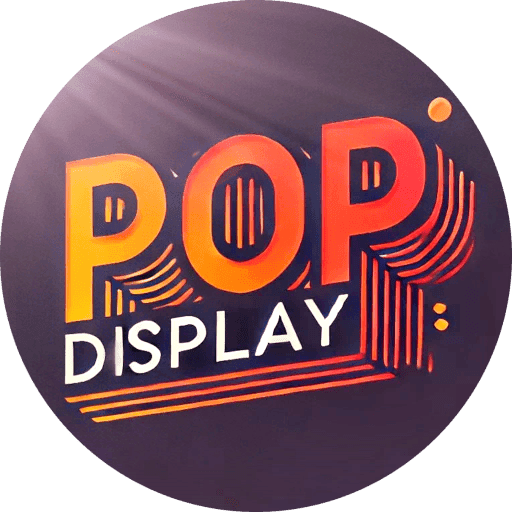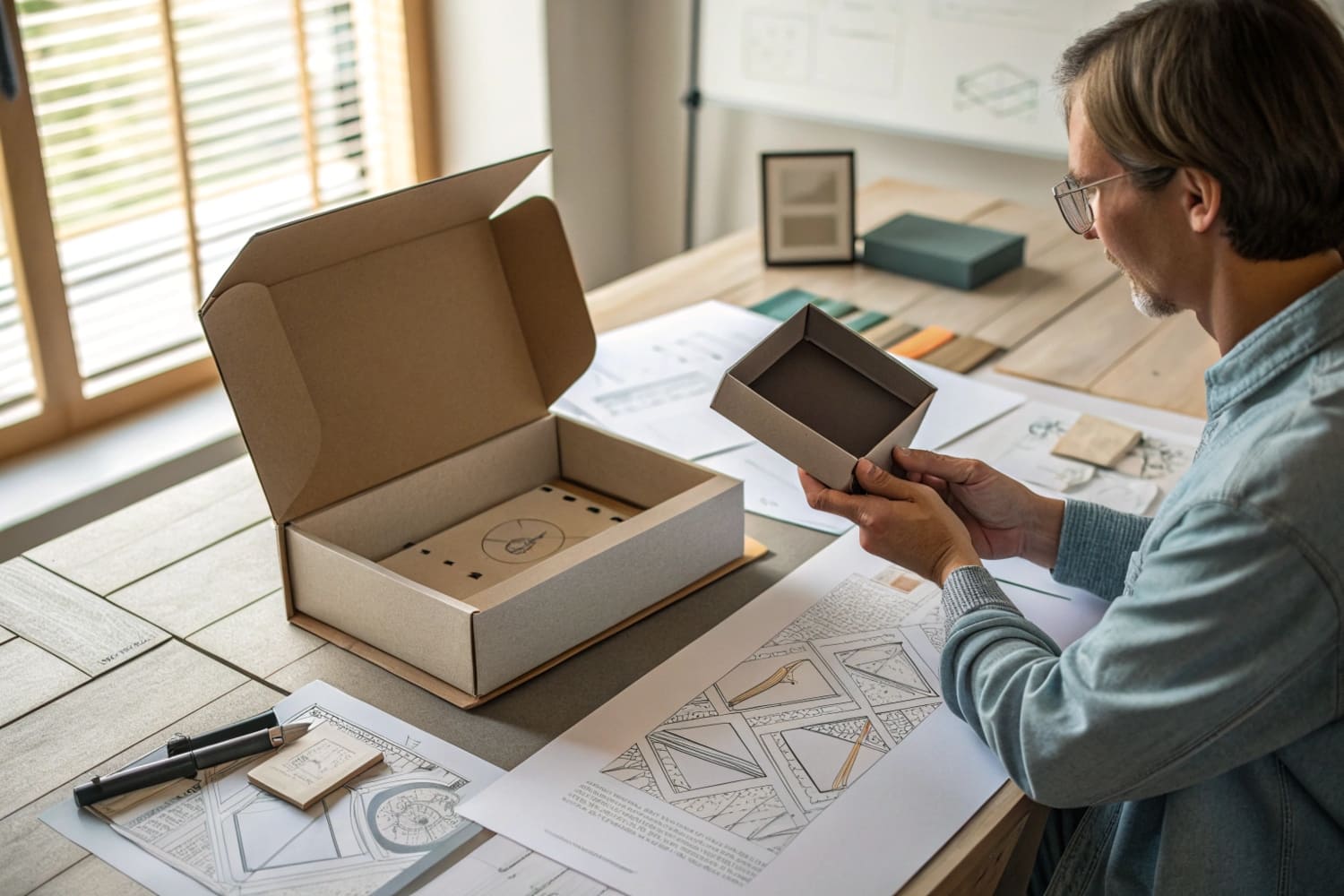I once rushed a trade-show launch and learned the hard way that great products still get ignored without the right box. That small panic became the seed for this guide.
Ordering custom product display boxes is simple when you break it into four steps: set goals, pick the right box style, approve a prototype, and lock in production and shipping.
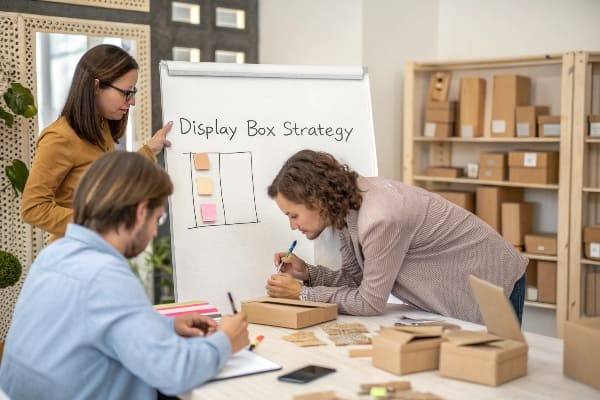
A clear path keeps buyers calm and keeps deadlines safe. Follow along and I will walk you through every detail I share with my own clients.
What are custom display boxes?
Your audience may stroll past hundreds of items. A dull box vanishes in that crowd. That tension is the problem I solve for my customers.
Custom display boxes are branded presentation packages built to fit one specific product line and to grab attention on a shelf or counter.
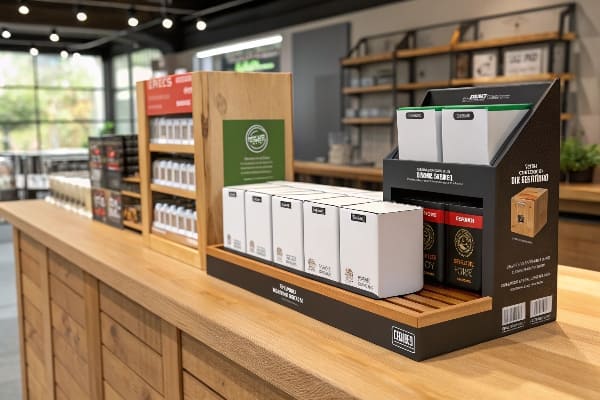
Parts and Purposes
Display boxes1 mix structure and print to tell a fast story. Below I split each layer so you can match it to your plan.
| Component | Job it does | Typical options |
|---|---|---|
| Structure | Holds weight, sets shape | Corrugated B-flute, E-flute |
| Print surface | Shows color and artwork | White clay-coated liner, Kraft |
| Internal fit2 | Stops movement, protects corners | Die-cut inserts, foam |
| Finish | Adds shine, texture, extra strength | Gloss varnish, matte film |
I always start by mapping where the box will sit. A counter display needs a small footprint. A floor unit must stand tall and take bumps. Then I load the product, shake the sample, and note weak points. Next I run color tests under store lights because bright LEDs can wash art out. Finally I add quick-swap zones3—small panels that I can reprint during a seasonal promo without rebuilding the whole unit. This saves money on repeat orders, a trick that has kept my U.S. customers coming back for ten years.
How much does it cost to make a cardboard box?
Rising paper prices spook many first-time buyers. I get it; quotes jump around like spring weather.
A custom printed corrugated display box for retail usually ranges from \$0.80 to \$3.50 per unit, depending on size, material, and order volume.
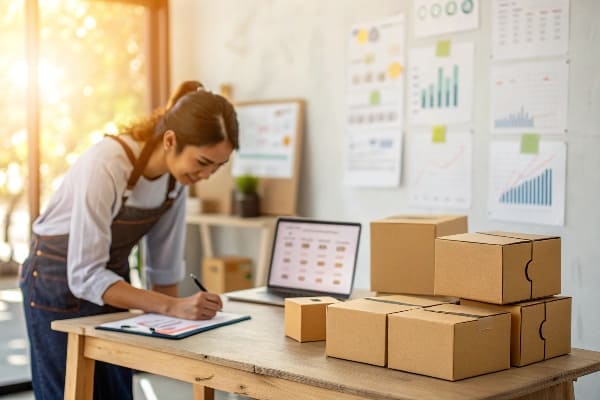
Cost Drivers You Control
Know each lever and you gain power at the negotiating table.
| Cost factor | Why it matters | Easy way to cut cost |
|---|---|---|
| Order quantity4 | Larger runs lower machine setup fee | Combine launches across SKUs |
| Board grade | Thicker board costs more | Match strength to real load not guesswork |
| Print colors5 | Every extra spot adds a plate | Limit art to CMYK where possible |
| Finish and lamination | Protects but adds time and glue | Use UV varnish only on front face |
| Freight route6 | Cardboard is bulky, not dense | Ship flat-packed, assemble on site |
On a recent 10,000-piece run for hunting-gear hang tags, I trimmed the unit cost by \$0.22 simply by switching from double-wall board to a high-burst single wall and reinforcing only high-stress corners. Strength tests showed no drop in performance, and my client re-allocated that saving into extra social ads. Always test before you trim.
What are the benefits of custom boxes?
A plain brown box is cheap today but pricey tomorrow when sales lag. That pain drives many brand owners to my inbox.
Custom boxes lift brand value, protect the product, speed shelf setup, and boost sales conversions by making shoppers stop, look, and trust.
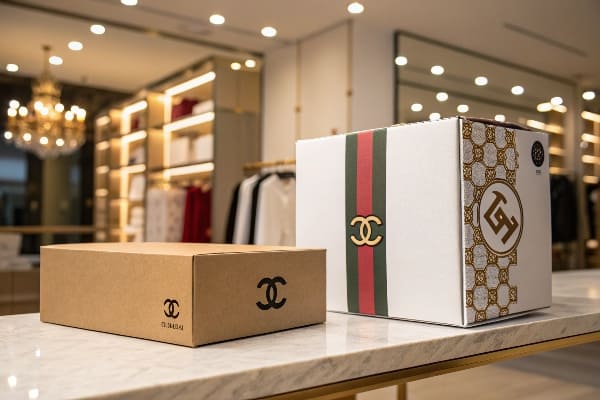
Four Payoffs That Repeat
I break benefits into clear, trackable wins so finance teams nod yes.
| Benefit | Measurable result | Real-world proof from my cases |
|---|---|---|
| Branding impact7 | Higher aided recall in surveys | Outdoor gear client saw 28 % bump |
| Protection8 | Fewer returns due to damage | Cosmetics launch dropped breakage to 0.3 % |
| Speed of display9 | Less labor at store set-up | Chain retailer cut 12 min per bay |
| Storytelling space | QR codes drive digital traffic | Pet-food box hit 7 % scan rate |
These wins compound over time. One fishing-tackle brand uses holiday sleeves on the same base box. The sleeve swaps in minutes, meaning we keep reorders lean and punchy. Another client embeds NFC chips under the varnish; the tap-to-video demo doubled dwell time at the shelf. Custom boxes are not just containers; they are quiet sales staff working 24/7.
What are custom retail boxes?
Retail buyers judge packaging in seconds. If it feels cheap, they worry the product inside is worse. I learned that during my first pitch to a big-box chain.
Custom retail boxes are consumer-facing packages designed for direct sale, following store guidelines on size, barcodes, and sustainability while reflecting the brand voice.
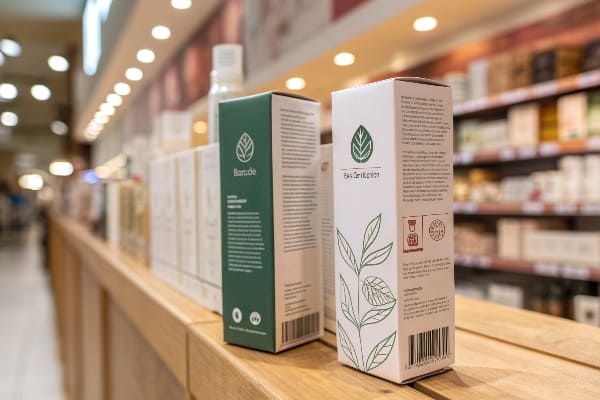
Meeting the Retail Rulebook
Below is my go-to checklist before any prototype ships to a buying office.
| Retail spec | Typical requirement | My action plan |
|---|---|---|
| Shelf footprint | Precise width and depth | Match CAD to planogram file |
| Barcode placement | 1.5 in × 1 in clear zone | Print on two sides for speed |
| Sustainability mark10 | FSC or recycled logo | Provide chain-of-custody certs |
| Stack strength | 22 lb edge crush for small boxes | Lab test and include report |
| Color reference | Pantone or store digital standard | Approve drawdown under light box |
Retail compliance11 looks dull but saves weeks. Once, a U.K. chain rejected a shipment because the hazard icon was 1 mm too small. That mistake cost my client express air freight. Since then I embed every guideline onto the dieline layer so the design team cannot miss it. I also shoot a short clip of the unboxing process; buyers love clear proof that the display comes together fast, which boosts acceptance rates.
Building Long-Term Flexibility
Custom retail boxes12 should grow with the product line. I often add perforated tear-off headers. They ship flat, then flip up at store level to act as a micro billboard. When the season changes, we slide a new header in without altering the base. This keeps the core tooling alive for years, which protects margins.
Conclusion
Custom display boxes turn cardboard into silent salespeople and, done right, they pay for themselves many times over.
Explore how display boxes can enhance product visibility and storytelling in retail environments. ↩
Learn about the importance of internal fit in protecting products and ensuring they arrive safely to customers. ↩
Discover how quick-swap zones can save costs and improve marketing flexibility for seasonal promotions. ↩
Understanding how order quantity affects costs can help you negotiate better deals and optimize production. ↩
Exploring the cost implications of print colors can lead to significant savings in your production process. ↩
Learning about freight route optimization can help you save on shipping costs and improve efficiency. ↩
Understanding branding impact can enhance marketing strategies and improve customer engagement. ↩
Exploring packaging protection strategies can lead to significant cost savings and improved customer satisfaction. ↩
Learning about speed in display setups can optimize retail operations and enhance customer experience. ↩
Exploring sustainability marks can reveal how they enhance brand reputation and appeal to eco-conscious consumers. ↩
Understanding retail compliance can help you avoid costly mistakes and ensure your products meet industry standards. ↩
Custom retail boxes can significantly improve product visibility and adaptability, making them a smart investment for brands. ↩
